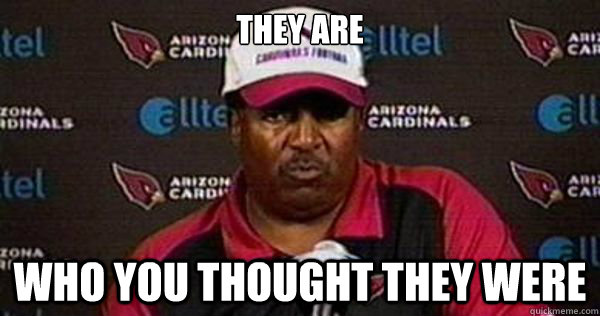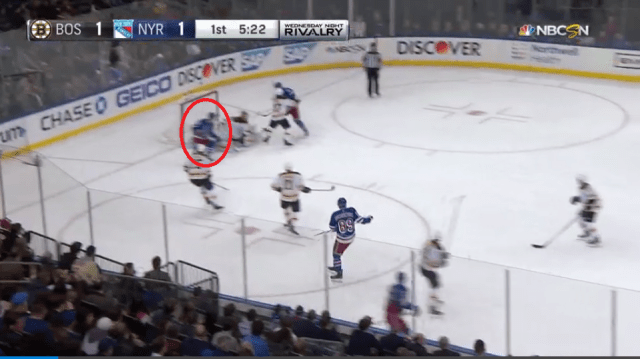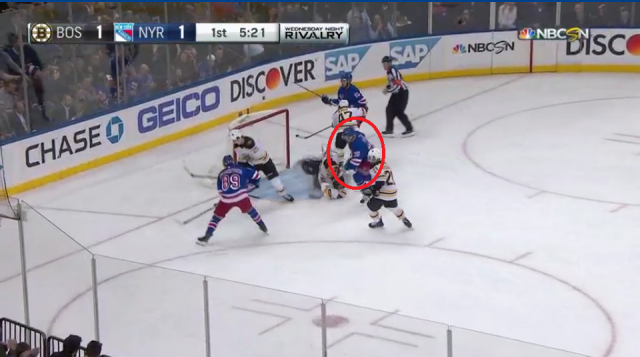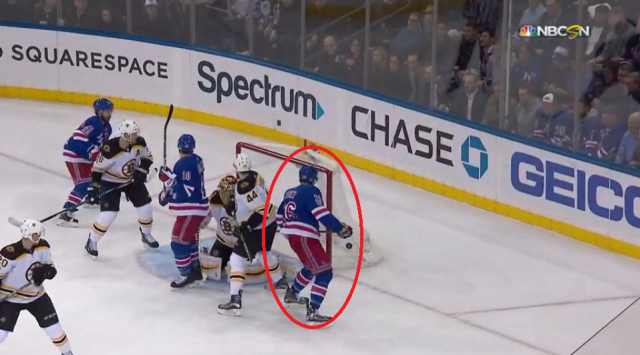Hello,
Allen Mayo here with a Boston Bruins recap, but I’m not really going to recap the game. Sure, I’ll talk about some of the things that transpired during last night’s tilt with the New York Rangers, but it won’t be a typical Days of Y’Orr recap. I want to talk about the Boston Bruins and the team they will more than likely be going forward.
I know the Bruins are missing David Krejci, David Backes, Brad Marchand and a gaggle of others but I don’t think those guys coming back are going to solve the problem the Bruins are having. The Bruins have two major problems:
- They can’t score goals.
- They’re being pushed around defensively.
Let’s start with the first one.
The Bruins Can’t Score Goals.
The Bruins are 25th in goals scored. Don’t look at goals for per game because it gives you an incorrect view of their scoring woes. The reason they’re higher in goals for per game (16th, 2.93) is because they’ve had multiple games where they’ve scored five or six goals. While Krejci and Backes have been out, the Bruins have leaned on the brand new, reconfigured #GetPoints line to get points.
If you look at the goals being scored, 41% of them is from Brad Marchand and David Pastrnak. I looked at some of the other teams in the NHL and what the percentage the top two goals scorers account for.
Top Four In Goals For This Season:
Toronto Maple Leafs: Matthews and Kadri: 19 goals, account for 30% of the Leafs goals this season.
Tampa Bay Lightning: Kucherov and Stamkos: 22 goals, account for 34% of the Lightning goals this season.
New York Rangers: Zibanejad and Buchnevich: 15 goals, account for 26% of the Rangers goals this season.
New York Islanders: Tavares and Lee: 20 goals, account for 37% of the Islanders goals this season.
Bottom Four In Goals For This Season:
Edmonton Oilers: McDavid and Nugent Hopkins: 12 goals, account for 37% of the Oilers goals this season.
Carolina Hurricanes: Skinner and Staal: 11 goals, account for 32% of the Hurricanes goals this season.
San Jose Sharks: Couture and Donskoi: 13 goals, account for 36% of the Sharks goals this season.
Buffalo Sabres: Kane and Pominville: 14 goals, account for 38% of the Sabres goals this season.
So what’s this mean?
The Bruins are too reliant on two people to score goals for them and I’m not sure that David Krejci or David Backes change that. David Krejci had 23 goals last season. He scored a goal every 0.28 goals per game. David Backes was even worse. That’s not going to change the dynamic of your scoring. Could he elevate the games of the youngins on his line? That’s a better chance, but Bruce is apt to drop Pastrnak to the second line.
The Bruins need to find someone else to put the puck in the net.
Last night against the Rangers it was David Pastrnak (surprise, surprise) and Patrice Bergeron who lit the lamp for the black and gold. The Bruins are going to up his goal scoring per game from last year if they’re going to vie for a playoff spot.
The Defense Is Getting Push Around Too Much.
This isn’t to say the Bruins defense is bad, but I’ve been noticing a trend. Watch the types of goals scored on the Bruins. Lately it seems that they’re having a problem when guys are in close to Tuukka Rask and jamming away by the post. You saw it twice last night with Jimmy Vesey and it happened to Paul Postma against Columbus.
The Bruins defense is doing an awful job sealing off the forward from Tuukka Rask.
Let’s look at Jenner’s goal against Postma:
[protected-iframe id=”d03c535be2ef6e596241523d6661502f-114320562-11465261″ info=”https://www.nhl.com/bluejackets/video/embed/jenners-first-goal-of-the-season/t-277443706/c-54039003?autostart=false” width=”540″ height=”360″]It looks like Postma gets caught up on Rask, but when re-watching it – Boone beats him clean to the post, pushes Postma out of the way and banks it by Rask.
Before Jenner even shoots, Postma is out of position and scrambling to do something but Jenner just simply bodies him. The same thing happened last night with Vesey, but on his first goal it is at the hands of Brandon Carlo and Jordan Szwarz. Vesey starts the play behind the net and Carlo doesn’t seem to be aware he’s there.
When the shot goes on net, Vesey is immediately in front of the goaltender while Carlo and Szwarz are both at the faceoff dot. Krug is on his man, but it looks like Carlo had no idea Vesey was even there. The puck pinballs around and Carlo goes to chase it and Szwarz doesn’t go to seal Vesey off.
This gives Vesey an incredibly easy goal and one people will blame on Rask because “tha goalie din’t stop it”.
On Vesey’s second goal, Rob O’Gara doesn’t seal him off in time and Vesey plunks the rebound in.
The theme to these three goals is that the Bruins defense is lacking the positioning awareness to stop these and allowing players to basically get into the blue paint. If they’re going to get better, this needs to stop and Adam McQuaid doesn’t solve this. It isn’t happening with just rookies and the kiddos. It’s happening to Torey Krug and Paul Postma, two veteran players.
They Are Who We Thought They Were
It’s as simple as that, right?
No one looked at this Bruins roster and believed they were contenders. We all knew that they were going to have some very rough games as the teams gains the NHL experience needed to contend in a couple of years. There are going to be more nights like this, but you’re also going to have nights like Minnesota where the secondary scoring is on point and the Bruins can put three, four or five goals on the board.
This isn’t the say the Bruins are a bad hockey team. They’re not. They’re not Arizona or Buffalo or Florida. They’re a middle of the road hockey team with some wonderful looking prospects (McAvoy, Bjork) and some elite tier talent (Marchand, Pastrnak, Bergeron [to an extent]). There’s no middle. It’s like watching The Walking Dead. An incredible opener, 9 episodes of nothing and a bombastic finish.
Add The Sports Daily to your Google News Feed!




